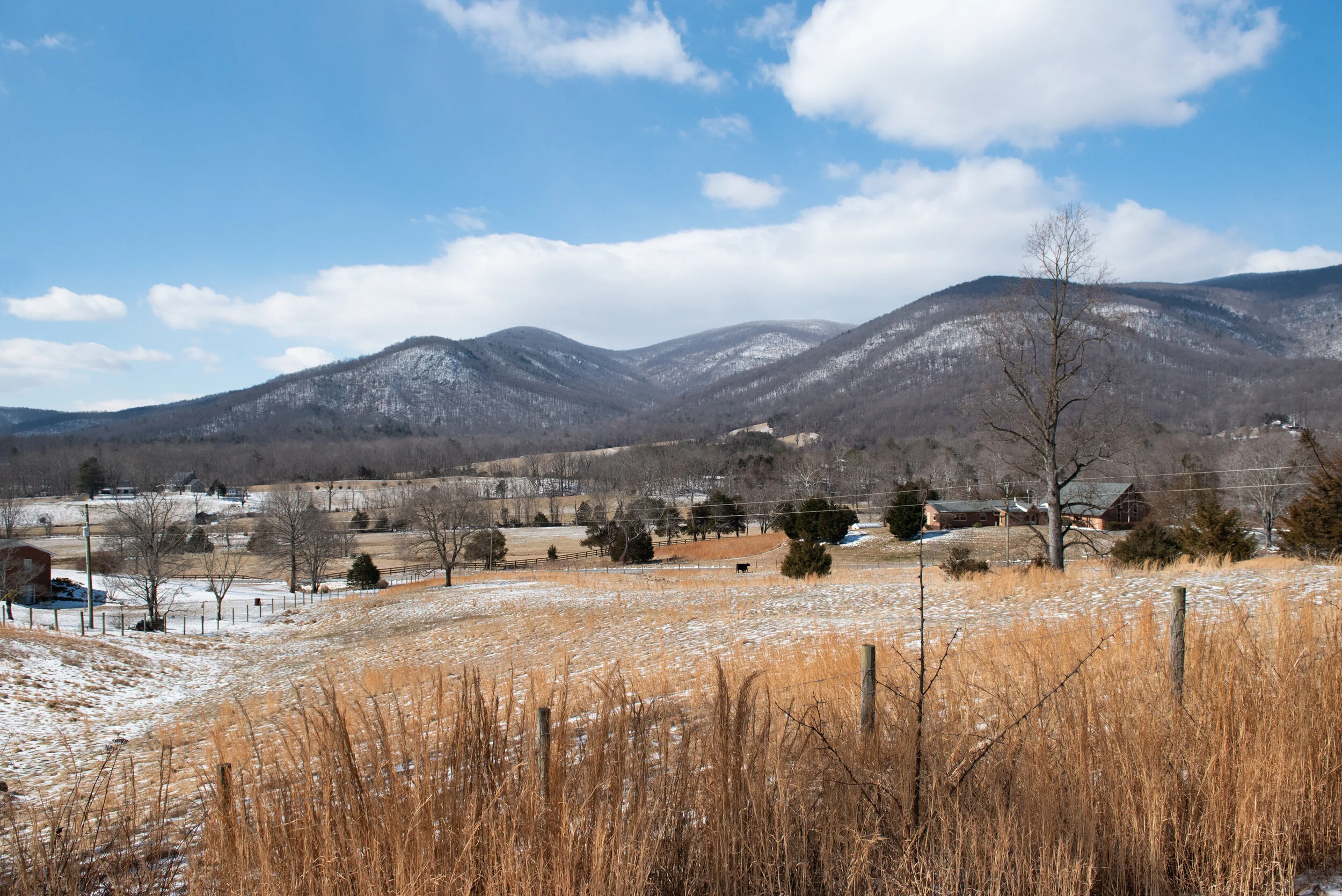Facing My Fears: Open Water Swim
Disclaimer: This post may contain affiliate links, through which we earn a commission.
The idea of swimming in the middle of a lake or ocean is incredibly scary to me. For the last 6 years, I've been a spectator to triathlons and it never ceases to amaze me how easy all the participants make it look - being out there in the open water on their own, not knowing what lurks beneath. Now that swimming is a part of my weekly workout routine with Wiehan, my mom likes to remind me that we had a pool in our backyard growing up, and I hardly ever used it. I took swimming lessons as a child and could doggie paddle and back float with the best of them. But all other aspects of swimming just didn't register with me. My best friend was on a swim team and knew her way around a lap pool like a pro. She could even dive. And she tried countless times to teach me this simple technique as well. For whatever reason, to this day, I cannot dive.
A Saturday morning open water practice swim at Lake Arrowhead in Luray, Virginia.
So imagine how it must've been when Wiehan visited me for the first time and needed a place to train for his first 70.3 Ironman. I brought him to our local recreation center and while he swam laps back and forth repeatedly, I could barely make it from one end of the 25 foot lane to the other. But I figured, if I was going to be hanging out with a triathlete, I'd better learn how to swim properly. So I signed up for a gym membership and began weekly visits to the pool. I quickly realized that the reason I struggled to make it from one end of the pool to the other had less to do with my fitness ability and much more to do with stress. When I got to the middle of the lane, I'd have a minor panic attack, with heavy breathing that resulted in quick fatigue. I worked on relaxing, calming my breath, and trusting my fitness ability to carry me 25 feet in the pool. And from there I built up endurance to the point that I could make it to the other side of an Olympic distance 50m lane repetitively for up to 1500m!
Lap swimming in a pool is not a problem for me anymore, for the most part. However, I'm not a big fan of the process of getting into the pool at the beginning of a swim. It takes me a few minutes to muster up the courage for the slightly chilly plunge. And I'm not a fan of putting my head under water. I also really don't like exposing myself to the toxic chemicals in chlorinated pools. But I can handle these things alright. What I can't handle, at least not yet, is taking all my swimming abilities and applying them to open water swimming.
But I have a goal. I want to complete a sprint distance triathlon in 2019. I have the fitness ability. I just need to overcome this fear of the open water. So I took my first step a few weeks ago. We drove down to Luray, Virginia, where Luray Triathlon sponsors practice open water swims throughout the summer at Lake Arrowhead, for $15 per person. The lake also has a sectioned off area for swimming any day of the summer from Memorial Day through Labor Day, with a small fee between $2-3 per person, based on age. Wiehan competed in the Luray Triathlon last year and the lake and surrounding area was so beautiful that I decided it would be a good place to try out open water swimming. It's also a favorable spot because the water is warm.
We arrived to the lake after a scenic 2-hour drive through western Virginia, just in time for the 90-minute swimming session to begin. It was a gorgeous, hot summer day, and I was excited to spend time in the lake! The water was clear at the boat ramp and I could see my toes as I began to walk in. With great confidence, I followed Wiehan into the water. When we began to swim a few feet from shore, I completely panicked when I put my head under the water and realized that the lake was solidly murky. I began hyperventilating and had to return to the shore, breathing hard, like I'd just run a 100m sprint. I told Wiehan to begin swimming while I regrouped. This is exactly why I haven't entered a triathlon yet. I just know that I'd be waisting an entry fee, with a panic attack keeping me from even really beginning.
Let's break it down to see what I'm really actually afraid of, and determine whether or not these are valid fears:
Drowning. This is a very real concern, especially when someone experiences a heart attack or passes out during a swim, most likely caused by the stress of the anticipated race, as well as the shock of the cold water and unexpected open water swimming conditions. Two people died in the 70.3 race in which Wiehan participated in 2013, during the swim. More statistics on triathlon deaths can be read in a Reuters article here, which concludes that people ought to have health screenings for underlying cardiovascular disease. But that doesn't necessarily account for individuals who panic in the middle of the swim.
Sharks. If I happen to be swimming in an ocean, this is also a very real concern. But in a mountain lake, this is definitely not a concern.
Alligators, crocodiles, hippos. Again, not a real concern based on swimming location.
Snakes, snapping turtles, jellyfish. Depending on the location, a snake bite will most likely not be poisonous. However, a bite could result in panic, making swimming a difficult feat. During a race or practice swim with life guards, I'd most likely be able to wave my hand in the air and draw attention to get fast help. But in a race, with so many people creating a slipstream, I'd guess that any living creatures will swim as far away from all that movement as possible.
Murky water and high lake grasses. This is just a general fear of the unknown and slimy things.
Polluted water. While I'm not a fan of chlorinated water, the alternative issue of swimming out in open water is, of course, manmade pollution. When I lived in Rochester, New York, the base of Kodak, there was a joke that went around stating that Lake Erie was so polluted with photography chemicals that you could develop a photo in the water. And of course the Potomac River here in the D.C. area is definitely not fit for swimming, though the Nation's Escape Triathlon does include a swim in D.C.'s waters. No, thank you! I'll be really choosy about the bodies of water in which I'll swim. And it's also a good idea to choose a race run by a director who is incredibly serious about safety and life guard duties.
Injury from fellow competitors. The beginning of the swimming portion of a triathlon is often termed a washing machine, with arms and legs flailing toward the first buoy. This can result in being unintentionally punched or kicked, and can also cause goggles to be knocked off, right at the beginning of a race. I've also heard that traffic jams occur at buoys throughout the course, also creating the possibility for contact with fellow swimmers.
The inability to rest in the instance of fatigue, injury, or disorientation. My planned strategy in any of these three instances is to roll over into a back float. It's also important to wave your hand in the air to call attention to the life guards. I've never worn a wetsuit, but I've heard that it provides extra buoyancy. For training purposes, a swim buoy is a great option, providing easy access to a floating device, as well as visibility. I'm on the lookout for a triathlon in shallow water. I think that's the best place to begin so that in the event that difficulties occur, I can stand up and catch my breath.
The Luray Triathlon offers gorgeous views and difficult hilly terrains.
Did I miss anything? Oh, well I should probably mention that while statistically the swim is the most dangerous leg of a triathlon because of the inability to rest at any given point along the route, injury can occur with both cycling and running. If you've ever tuned in to the Tour de France, you know that cycling crashes occur frequently, generally by way of nervous pelotons or fast descents. Most triathlons don't allow drafting, which limits crashes caused by fellow cyclists. But taking a downhill turn at the wrong speed and line can be a danger for any cyclist. And running also has it's dangers. Though an unlikely occurrence during a triathlon, I've been attacked by a dog on three separate occasions, twice while running. (Dog owners, please leash your dogs in public. Thank you!) And of all three triathlon disciplines, running has the most significant impact on the body, which can result in self-induced injuries, based on improper form and over-training.
Therefore, while triathlon is not a contact sport, it does have its fair share of risks. And it's highly important to understand these risks before rushing to sign up for a race. But in most instances, the benefits far outweigh the risks. And now that I've listed many possible causes for concern, as well as identified a plan in the event of an emergency, it's important to let go of these thoughts to some degree, focusing instead on all the positive reasons to participate in swimming, cycling and running. Here at Mountain Road, we are focused on living a healthy, sustainable and balanced lifestyle. Triathlon fits in with our ideology because it provides a well balanced fitness routine. When I was running track and cross country in high school, it definitely felt like I was putting far too much impact on my body with so much running, day in and day out. Running is my favorite of the three disciplines, but now I can break up a week with 3 solid running workouts, spread out between a swim and a bike ride or two, and sometimes even a day set aside for yoga or hiking. Rather than rushing myself into my first race, I'm taking my time, gradually building up preparation physically, but just as importantly, mentally and emotionally. Fortunately I don't have to hurry, because while I'm not in it for an Olympic medal, triathlon is a sport accessible to all ages. I'm in it for the physical health benefits, as well as the mental and emotional health benefits of trying something new, while pushing my abilities and facing my fears.
Now that we've laid out some possibly dangerous triathlon scenarios, let's get back to my story at Lake Arrowhead. Eventually I relaxed enough to try a full 150m lap. Wiehan swam alongside me as my guide, which was especially helpful because my goggles fogged up. Lacking actual buoys, our instructions for the day were to swim laps around kayaks, 75m apart. I swam out to the far kayak with ease, and as we turned to head back toward the shore, I could feel the panic rising up within me again. I'm out here in the middle of nowhere, I thought. Relax, calm down, breath, I told myself. But that second 75m was a struggle. I desperately wanted to be out of the water. When I reached the shore, I got back out on dry land to compose myself again. And then as the session was nearly over, I worked up the courage for one last try. This time, I focused on long, deep exhales, as opposed to the short, quick inhales that occur with panic. I love the advice given by the YWCA to choose a swimming mantra like a song, a word or a technique on which to focus, rather than allowing fearful thoughts a place in your mind. With the focus on deep exhales, I managed to swim a nice, steady pace for 150m, out and back. I swam a total of 300m that day, followed by a cycling and running triathlon simulation in the gorgeous, but very tough mountainous terrain of Luray. Check out our video from the day here! I look forward to future opportunities to continue working on further conquering this fear. But wow, watching participants of the 70.3 Ironman World Championships earlier this month running into the Indian Ocean in Port Elizabeth, South Africa - that's a whole other level!
UPDATE: I did it!! I swam in open water! Read all about it here!
Like our photos? Check out our store to purchase a select print from this adventure! Custom orders are also available.
- Christin
Tell us! Are you a triathlete who struggled with a fear of open water swimming? Any advise for those of us trying to overcome our fear? And if you know of a triathlon with warm, clear, calm, shallow water, let me know!








